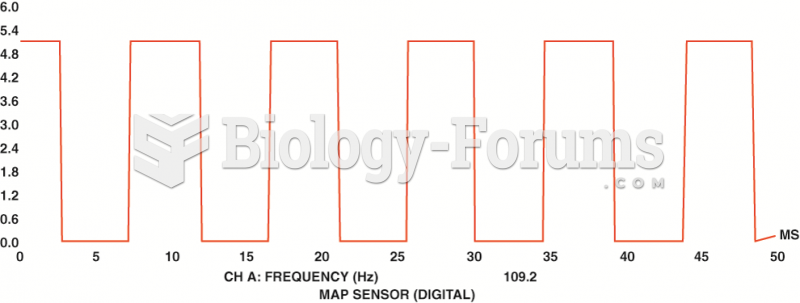|
|
|
IgA antibodies protect body surfaces exposed to outside foreign substances. IgG antibodies are found in all body fluids. IgM antibodies are the first type of antibody made in response to an infection. IgE antibody levels are often high in people with allergies. IgD antibodies are found in tissues lining the abdomen and chest.
For pediatric patients, intravenous fluids are the most commonly cited products involved in medication errors that are reported to the USP.
Autoimmune diseases occur when the immune system destroys its own healthy tissues. When this occurs, white blood cells cannot distinguish between pathogens and normal cells.
The B-complex vitamins and vitamin C are not stored in the body and must be replaced each day.
There are over 65,000 known species of protozoa. About 10,000 species are parasitic.
 The bimetallic temperature sensor spring controls the amount of silicone that is allowed into the ...
The bimetallic temperature sensor spring controls the amount of silicone that is allowed into the ...
 Measuring the resistance of the ECT sensor. The resistance measurement can then be compared with ...
Measuring the resistance of the ECT sensor. The resistance measurement can then be compared with ...





